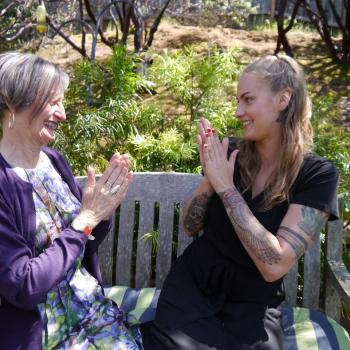When Sondra, age 40, arrived for her counseling appointment, she wanted to focus on her difficulty in selecting partners who are a good match for her. She also acknowledged that her former therapist (in college), told her that she had insecure attachment because both of her parents were alcoholics who ignored her emotional needs. I validated her experience and began researching this topic.
In a recent article for The Gottman’s Institute’s website, Dr. Marni Feuerman dissects attachment theory and the way it impacts people’s ability to find successful, fulfilling relationships. A well established aspect of relational psychology, attachment theory “describes how our early relationships with a primary caregiver, most commonly a parent, creates our expectation for how love should be.”

Ultimately, the theory is a tool to help us uncover how events and emotional dynamics early in life resurface years later in adult relationships. Achieving an understanding that “our view of ourself and others is molded by how well these caregivers were available and responsive to meet our physical and emotional needs” is critical in gaining awareness around the types of triggers that lead to conflict in romantic relationships later in life.
Dr. Feuerman outlines what she calls “The Attachment Alarm” — in other words, she asks readers to consider the quality of care you received early in life with questions around whether your were loved, whether you were neglected, whether there were trusted caregivers in your life, and whether your care was marked by consistency or a lack thereof.
The answers to these questions will help one understand their own attachment style, which fits into a rubric whereby you can gain insight into “the four main patterns of attachment in adults and how they commonly affect couples in their relationships.” In cases where a primary caregiver neglected a child or was unresponsive, that child will often grow up to “form an insecure attachment pattern.”
Insecure attachment patterns grow out of neglect and manifest in several ways in adulthood. First is “anxious attachment” where childhood neglect leads to a person being “clingy” and largely incapable of truly trusting a partner in later life. “Avoidant attachment” is marked by “children that play by themselves and develop the belief that no one is there to meet their needs. As adults, they typically label themselves as very independent.” Finally, “disorganized attachment develops from abuse, trauma, or chaos in the home.” In these cases, people in adult relationships feel unmoored and experience a general lack of emotional security.
But Dr. Feuerman offers hope to those who may have survived a less than ideal adolescence and who hope to break the negative attachment patterns that come to dominate their romantic relationships in adulthood. Being cognizant of your past and resulting attachment style is the first step, and this is aided by working with a quality therapist. But Dr. Feuerman also observes that “you can challenge your insecurities by choosing a partner with a secure attachment style, and work on developing yourself in that relationship.” In the end, she counsels adults that “by facing your fears about love, you can build new styles of attachment for sustaining a satisfying,
Follow Terry Gaspard on Twitter, Facebook, and movingpastdivorce.com. Her book Daughters of Divorce: Overcome the Legacy of Your Parents’ Breakup and Enjoy a Happy, Long-Lasting Relationship is available on her website. Feel free to ask a question here.
Terry’s book, The Remarriage Manual: How to Make Everything Work Better the Second Time Around, was published by Sounds True in February of 2020.












